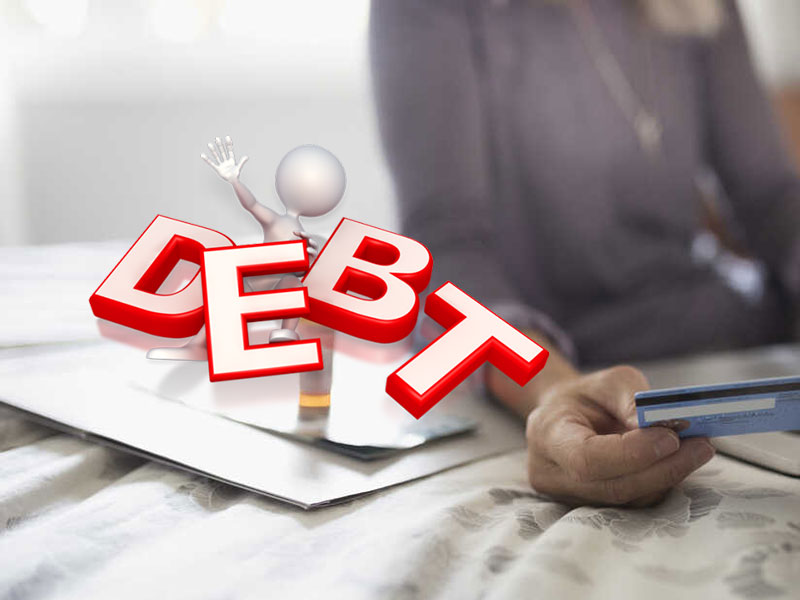
No one is immune to attempted phone scams. Scam debt collectors rely on the law of averages that the victims will believe they owe money, whether they regularly pay their bills or not.
Senior citizens are hit the hardest, losing $1 billion in scams last year alone. Unfortunately, seniors often mistakenly assume the debt collector is legit.
If you’ve received a call from someone attempting to collect money, you may have wondered how to know if a collections agency is legitimate. You aren’t alone.
Phone scams have cost Americans $29.8 billion in the past year. We’ll give you the signs to be on the lookout for in this article.
Table of Contents
How To Spot a Fake Debt Collector
To determine if a debt collector is legit, watch for the following signs:
1. High Pressure
If callers are using threats of jail time or attempting to create a sense of urgency, they are probably not legitimate debt collectors. Consider high-pressure tactics a red flag.
2. No Contact Information
A reputable debt collection agency readily provides any necessary contact information so that you can arrange to pay your debt. If the caller is evasive or refuses to provide a way for you to call back, email, or verify the business, he or she is not legitimate.
3. Invalid Debt
A scammer will give you a vague idea of a debt you are likely to have, like a car or rent payment. If you are told that you have outstanding debt, you can validate it by checking your credit report on any of the major credit bureaus.
If you have defaulted on a debt, it should show what agency has been assigned to collect it.
4. No Written Notice
Be on the lookout for written collection notices. Those are sent out by debt collection agencies when they are assigned to resolve the amount owed. If you get a call from collectors, ask them to refer to the information on the written notice.
If you haven’t received a letter in the mail or they cannot give you any of the information on the notice, they are probably running a scam.
5. Request for Cash Payment
Legitimate collectors will speak to you about a variety of repayment options. Scammers typically pressure you to use a nonreversible cash equivalent, such as a prepaid card or money transfer.
6. Blackmail or Extortion
Some scammers will try to shame, extort, or blackmail you by threatening to disclose your default to your family, friends, neighbors, or co-workers. They are betting that you don’t know that a professional collection agency cannot share any details of your debt with most others by law.
How To Know If a Debt Collections Agency Is Legitimate

All scammers are not equal. Some are savvier than others and can sound convincing by knowing some information about you that is easily found on the internet.
When they call people out of the blue, give some seemingly private details, and use scare tactics, it can shake even those who are confident they aren’t in arrears. So how do you know if callers are legitimate?
The short answer is to ask questions. Be sure they can provide the following:
- Name of the caller
- Company name
- Street address
- Telephone number
- Professional license number (if your state requires licenses for debt collectors)
- Written validation notice
Until you have verified all the above information, do not give any personal information or pay any money. The Consumer Financial Protection Bureau is a government agency that ensures Americans are treated fairly by financial companies like banks, lenders, and others.
The Debt Collection Rule clarifies the Fair Debt Collection Practices Act effective as of November 30, 2021, giving you rights under the law.
How To Find Out If a Debt Collections Agency Is Licensed in Your State
Many states have requirements that any debt collection agency must be licensed before attempting to collect on defaulted payments.
However, the following states do not: California, Georgia, Iowa, Kansas, Kentucky, Montana, Oklahoma, Pennsylvania, and South Carolina.
If you do not live in one of these states, you can check for licenses in the following ways:
- Check to see if it is registered with the Division of Corporations in your state – Search for the collector’s address at: www.residentagentinfo.com.
- Search the Better Business Bureau website – It is an excellent place to see if the agency is a “BBB Accredited Business” or if it has had any complaints.
Finally, if you can’t get any information, send the collector a Debt Validation Letter. If it isn’t a legitimate debt collector, you’ll likely cease to get calls.
What To Do If You Suspect You Are Involved in a Scam
If you believe you have gotten a call from someone pretending to be a legitimate debt collector:
- Contact the creditor directly to verify the debt and who should be collecting it.
- Check your credit report to verify what the caller has told you.
- Do not provide any financial information
- Request contact information for the company
- Do a Google search about the company
- Send an email to see if you get a response
- Check the contact information on the website to see if it matches what you were given
- Call the number on the website to ensure the company is legitimate
Finally, stay calm. If you owe a debt and the collector is with an authorized agency, you will not be threatened, shamed, or pressured. Though companies may try to use aggressive tactics, there are laws that protect you and resources to help you.
They are prohibited from calling your place of work if you’ve told them to stop and cannot contact you late at night or early in the morning.
They cannot disclose information about your debt to anyone not involved with it.
You have options and time to verify the information you have been given. Remember the tips on how to know if a collections agency is legitimate. You can also take steps how to find out if a debt collections agency is licensed in your state.
Finally, you can report scammers to the CFPB, or contact the Attorney General’s office in your state.





